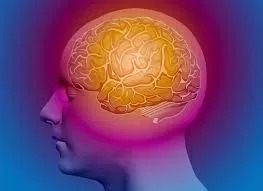Amnesia is the inability of one to remember events for a period of time. It can be for a few months to years often due to brain injury, illness, or effects of drugs. Occurs when the brain structure which forms the limbic system responsible for emotions and memories is damaged. The limbic system is made of the thalamus. It is within the center of the brain and the hippocampal formations, within the temporal lobes of the brain.
Causes of amnesia.
- Stroke.
- Anoxia occurs when the level of oxygen to the brain is less due to carbon monoxide poisoning or as a result of respiratory distress.
- Severe seizures.
- Effects of medications such as benzodiazepines.
- Presence of tumors in the brain.
- Diseases that degenerate nerve tissues such as Alzheimer’s disease.
- Head injury.
- Trauma incidences.
- Brain infections may lead to brain inflammation.
- Wernicke-korsakoff syndrome which is due to long-term misuse of alcohol, which may lead to little vitamin B-1.
Types of amnesia.
- Neurological amnesia- occurs as a result of injury or damage to the brain.
- Retrograde amnesia- conditions such as dementia cause gradual retrograde amnesia. Affects recently formed memories while older memories are lost slowly with time.
- Anterograde amnesia- one can’t form new memories. Occurs when the hippocampus which is part of the brain is damaged.
- Drug-induced amnesia- consumption of drugs such as sedatives like Imovane or Ambien.
- Post traumatic amnesia.- occurs after a head injury.
- Dissociate amnesia – one is not able to recall important details about themselves. The brain does this so as to protect the individual sometimes from a bad experience.

Risk factors.
- Stroke.
- Alcohol misuse.
- Seizures.
- Brain surgery.
- Head injury.
Prevention of amnesia.
The main cause of amnesia is damage to the brain. Steps taken to minimize chances of brain injury are:
- No alcohol misuse.
- When cycling it’s good to use a helmet and use of seat belts when driving.
- Infections should be treated as soon as possible to avoid the spread of infection to the brain.
- Severe headaches and numb feelings on one side of the body which are suggestive of stroke should be treated.
Diagnosis of amnesia.
- Medical history should be detailed. Can be provided by a family member.
- Physical examination where reflexes and sensory functions are checked.
- Cognitive tests- where one’s general knowledge is tested. It is used to evaluate one’s memory so as to determine the extent of memory loss.
- Imaging tests like MRI and CT scans are used to assess the level of brain damage.
- Blood tests- are used to check for infections.
- Use of an electroencephalogram to asses for seizure activity.
Treatment.
- Occupational therapy where one learns new information to replace the ones lost.
- Use of technical assistance such as a smartphone to act as a reminder for daily activities. Photographs of people and places can also be used.
- Use of medications and supplements. If amnesia is due to Alzheimer’s disease medications such as cholinesterase inhibitor can be used to help with the symptoms.
- Palliative care where family members ensure one is comfortable and given the needed support.
- Egerton university, fees, location, courses.
- List of Accredited Private Universities in Kenya
- List of Best private secondary schools in Nairobi County.
- The best private primary schools in Nyeri county.
- How is The Lenana Boy school and location?
- What is the history of Kenyatta University?
- Kenya Medical Training College, courses, requirements.